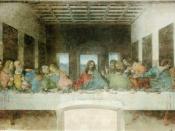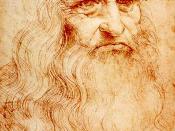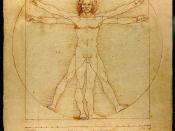Humanism And the Renaissance
The great intellectual movement of Renaissance Italy was humanism. Renaissance humanism is the spirit of learning that developed at the end of the middle ages with the revival of classical letters and a renewed confidence in the ability of human beings to determine for themselves truth and falsehood. The humanists believed that the Greek and Latin classics contained both all the lessons one needed to lead a moral and effective life and the best models for a powerful Latin style. They developed a new, rigorous kind of classical scholarship, with which they corrected and tried to understand the works of the Greeks and Romans, which seemed so vital to them. Humanist theologians insisted that the formal theology of the universities was far less valuable than a direct knowledge of the biblical text. Francesco Petrarch (1304-1374) was a poet and a novelist. Petrarch is considered one of the greatest loved poets of world literature.
A scholar of classical antiquity, he was the founder of humanism. In contrast to his many predecessors, who wrote in Latin, Petrarch wrote in Italian, the vernacular. He wrote poems (sonnets) and wrote letters addressed to deceased poets and writers. Petrarch is regarded one of the pioneers of the Renaissance. He set a standard for Italian orthography, as he was the first major writer to write in this language.
Nicollo Machiavelli was another Renaissance humanist. He was a writer, who was head of the second chancery of the Republic of Florence. When the Republic fell, and the Republic was replaced by a Duchy, Machiavelli went into exile. In exile, in 1513, he wrote Il Principe (the Prince). Published in 1532, by 1559 the book for the first time was listed on the papal index of forbidden books. In the Prince, Machiavelli points out...


